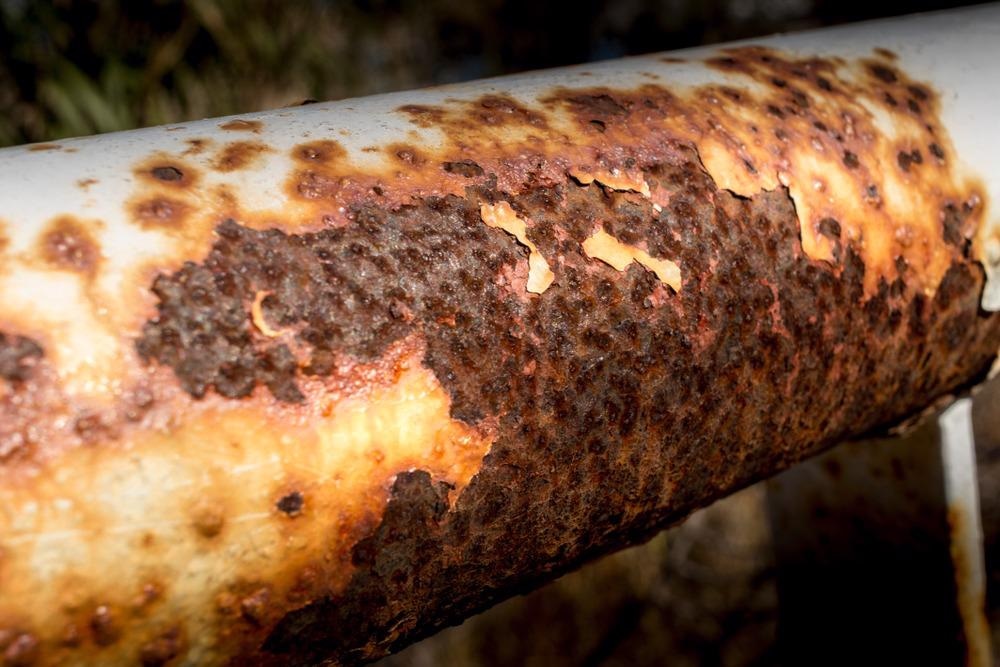Novel and sustainable methods of corrosion inhibition have been discussed thoroughly in the latest study published in Environmental Chemistry Letters.

Study: Green technology for sustainable surface protection of steel from corrosion: a review. Image Credit: Guilbaud Stan/Shutterstock.com
Industrial Utilization of Steel
Steel is one of the most widely used alloys owing to its top-notch mechanical properties. These properties include malleability, ductility, high strength, formability, and ductility. The most common steel alloys are carbon steel and mild steel. According to the research Thermal treatment, car, shipbuilding, architecture, petrochemical, and metallurgy are the top steel users in various forms such as process components, raw material, and equipment manufacturing.
The construction sector is the greatest consumer, accounting for over half of total global steel consumption. The second industry is transportation (cars, trucks, aircraft, shipbuilding, and rail). The equipment and metal products industries each utilize around 14% of the world's steel.
Corrosion and Its Effects
Steel corrosion is the permanent degradation and loss of steel materials and their important qualities caused by the electrochemical or chemical reactivity of their surfaces to environmental elements such as acids, humidity, and oxygen.
Read More: Protecting Mild Steel from Corrosion using Zinc
The study reveals that corrosion causes embrittlement, changes in surface properties, and reduces the efficacy of metal usage in industrial applications, therefore thus must be regulated. According to investigations, worldwide rusting losses total 2.7 trillion dollars per year (approximately 4.3 percent of the gross domestic product).
Importance and Types of Corrosion Resistance Techniques
Corrosion inhibition and prevention are two distinct techniques, with the first one being the more commonly used. Corrosion inhibition is a method of protecting a surface against electrochemical processes by using synthetic or natural chemicals. Corrosion inhibitors are commonly employed in the petroleum industry to prevent corrosion induced by acidic gases.
Although corrosion inhibitors come in a variety of forms, natural sources-based corrosion inhibitors, also known as green corrosion inhibitors, have gained popularity due to their low toxicity, availability, and cheap cost of production.
Green Corrosion Inhibitors
According to the latest research, green corrosion inhibitors are extensively used and contain plant-based components. The most typical method for producing natural corrosion inhibitors is to dehydrate the plants in the sunlight or shade and then powder them. Solvent extraction is used to remove the active compounds from the biomass powder.
Green corrosion inhibitors are readily biodegradable, environmentally benign, carbon-based, and cost-effective. Green corrosion inhibitors are generally made from sustainable and renewable materials.
The two types of green inhibitors include organic and inorganic green inhibitors. Organic materials include plants, medicines, proteins, surfactants, ionic liquids, and biopolymers, whereas inorganic green corrosion inhibitors include rare earth metals.
Applications for Steel Corrosion Inhibition
The effectiveness of each inhibitor was carefully estimated by assessment through a series of experiments such as mass loss experiments, microscopy, and electrochemical studies. The studies were extensively performed in acidic, alkaline, and marine environments.
Research Findings in Acidic Medium
The use of coconut coir as a green corrosion inhibitor for mild steel was examined at temperatures ranging from 303.15 to 333.15 K. The efficiency of inhibition improved with increasing extract concentration, and the highest inhibition was about 94.3 percent.
The effects of Morus alba pendula leaf extract on carbon steel corrosion prevention were tested across a wide range of temperature changes and extract quantities. With the use of this extract, high inhibitory effectiveness of 93 percent was obtained at 298.15 K.
Research Applications in Alkaline and Marine Medium
In alkaline medium, henna and Brahimi extracts were useful in corrosion inhibition up to 65-80% with concentration variation from 0.5-2%. Mulberry leaves in the same environment had an efficacy of 88% for carbon steel.
Under alkaline circumstances, areca nut husk was employed as a corrosion inhibitor and tested with mild steel. Under ideal working circumstances, the maximum attainable efficiency was 91.66 percent. The efficiency dropped as the temperature rose, confirming the physical nature of the protective coating on the metal surface.
High oxygen content in Marine environments increases corrosion rates. However, the study showed that green nettle leaves extracts had a corrosion inhibition efficiency of 95%. In addition, Basil extract with the incorporation of nanotubes in a 3.5% common salt medium proved to be 98% effective. Hence, in all three mediums, natural sustainable inhibitors were highly effective.
Future Prospect
Although a comprehensive study has been done by the researchers yet several factors are still to be researched. An important aspect is the study of the impacts of extreme environments such as high temperatures. In addition, tests such as thermogravimetric analysis should be carried out to demonstrate the feasibility under exothermic settings. Green corrosion inhibitor applications should be investigated in a gaseous atmosphere.
In short, sustainable means for avoiding steel corrosion have been the center of focus for quite some time and the recent study has discussed essential aspects in this regard that would be fruitful in increasing the lifetime of such alloys and protecting them from rust and corrosion.
References
Al Shibli, F. Z., Bose, S., Kumar, P. S., Rajasimman, M., Rajamohan, N., & Vo, D. V. (2021). Green technology for sustainable surface protection of steel from corrosion: a review. Environmental Chemistry Letters. https://link.springer.com/article/10.1007/s10311-021-01332-6
Disclaimer: The views expressed here are those of the author expressed in their private capacity and do not necessarily represent the views of AZoM.com Limited T/A AZoNetwork the owner and operator of this website. This disclaimer forms part of the Terms and conditions of use of this website.